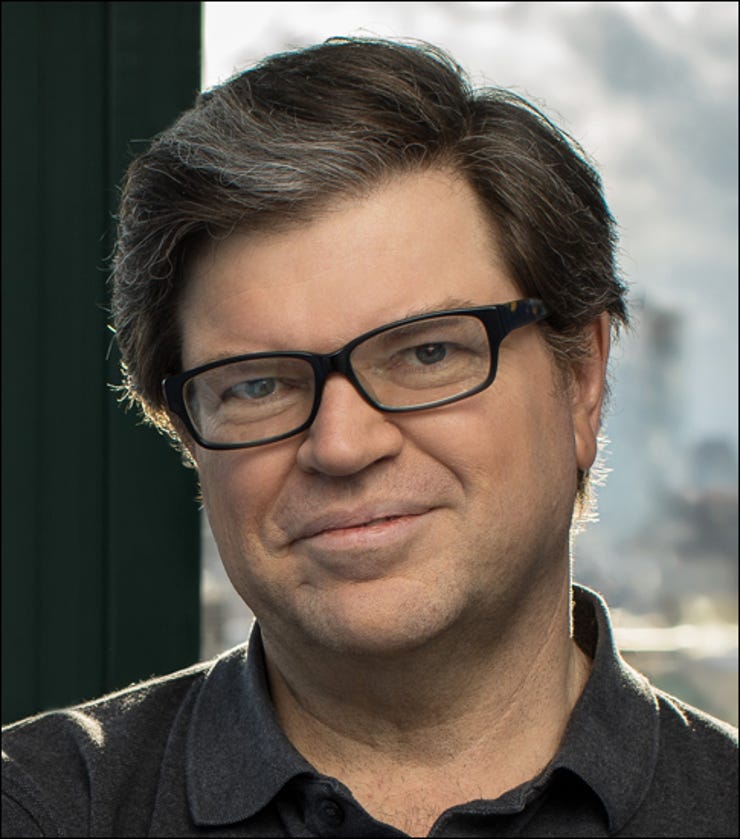LeCun, Hinton, Bengio: AI conspirators awarded prestigious Turing prize

"I call this the deep learning conspiracy."
That was the way Yann LeCun, Facebook's head of AI, described the recent history of his field during a keynote at the International Solid State Circuits Conference in San Francisco last month.
"It was composed of myself, Geoffrey Hinton at the University of Toronto, and Yoshua Bengio at the University of Montreal, and we kind of got together and deliberately tried to rekindle the interest of the community in those approaches."
Those approaches, in this case, the connectionist school of machine learning, were successfully resuscitated, starting in 2006, and on Wednesday, the triumph of the conspiracy was celebrated, as the conspirators were given one of the highest awards in computing.

Facebook AI chief Yann LeCun.
LeCun, along with Hinton, now a Google fellow, and Bengio, at the University of Montreal's MILA institute, were awarded this year's Turing award for creating, over the course of their lifetimes, systems and theory that advanced computer science, given out by the Association for Computing Machinery.
AI is "one of the fastest growing areas in all of science and one of the most talked-about topics in society, said the Association's president, Cherri M. Pancake, who credited the growth in interest in AI "in no small part" to "recent advances in deep learning" by the three.
The award recognizes specific achievements of the three, mentioning LeCun's work in the early 90s introducing convolutional neural networks, and his work with Leon Bottou, also of Facebook, advancing the notion of neural networks as being composed of modules that are differentiable. Hinton is mentioned in conjunction with, among other things, the original development of the backpropagation approach for neural network optimization, in 1986, along with David Rumelhart and Ronald Williams, and his development of the "restricted Boltzmann machine," along with Terry Sejnowski, which demonstrated the viability of multilayer neural networks in the 1980s. Bengio's pioneering work in word embeddings was recognized as a major breakthrough in natural language processing, among other things.
Google fellow Geoffrey Hinton
The Turing award, named for famed British mathematician Alan Turing, comes with a $1 million prize, in part backed by Google. The three recipients will receive the award at the annual ACM awards banquet on June 15th in San Francisco.
MILA's Yoshua Bengio.
LeCun, Hinton and Bengio join past winners such as Web inventor Tim Berners-Lee (2016), computer mouse inventor Doug Engelbart (1997), and a famous skeptic of artificial neural networks, Marvin Minsky (1969).
If you're interested in reading up on the history of AI into which these four scientists fit, an excellent book to read is The Deep Learning Revolution, by Terry Sejnowski, from MIT Press. it's a brilliant blend of historical account and personal memoire, as Sejnowski has been working with these scientists for decades.
Previous and related coverage:
What is AI? Everything you need to know
An executive guide to artificial intelligence, from machine learning and general AI to neural networks. The lowdown on deep learning: from how it relates to the wider field of machine learning through to how to get started with it.
What is machine learning? Everything you need to know
This guide explains what machine learning is, how it is related to artificial intelligence, how it works and why it matters.
What is cloud computing? Everything you need to know about
An introduction to cloud computing right from the basics up to IaaS and PaaS, hybrid, public, and private cloud.